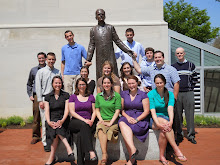Monday, January 12, 2015
What does it mean that marriage is indissoluble, Part I
Time for the Family
1/12/2015
Divorce
,
Indissolubility
,
Love
,
Marriage
,
RColeman
,
Synod on the Family
No comments
:
The October 2014 Extraordinary
Synod of Bishops brought up many questions and concerns regarding marriage and
the family, but none quite so fixated on as sacramental marriage and its
description as “indissoluble.” That is to say, marriage is indissoluble and
therefore it is not simply that the Church refuses or doesn’t want to grant
divorces, as many may think, but that, bluntly put, she cannot, because divorce
does not actually exist. Marriages simply are indissoluble—there is no way
around this.
But what do we mean—what does the
Church mean—when we say “indissoluble”? I intend to explore the term and all
that it entails in two short articles, this, of course, being the first. To
start off, in order to understand indissolubility and all its implications
better, let’s explore the components, if you will, of a marriage. We know the
deal: a man, a woman, their vows to each other, and the witness (barring truly
extraordinary circumstances) of a priest and someone else. It seems pretty
simple, and in a way it is, because marriage is in one way the most natural
phenomenon that exists. In another way, it is the most supernatural—that is,
filled with grace—and it’s this paradox of marriage’s supernatural natural-ness
that will help us understand indissolubility better. But in order to look at
this paradox properly, we have to look at what a vow is.
Put simply, a vow is the handing
of oneself over to another forever. But in this time of indecisiveness and easy
choice, taking up one’s freedom in order to say “forever” seems unlikely at
best, or maybe even impossible: How can I give myself away unless in every
moment I’m making that decision all over again? But this is not what the marriage vows, or any other vows,
mean: a vow makes that decision, as it were, for the rest of one’s life. We
relieve ourselves of the burden (while surely taking on new ones) of trying to
understand what the state of one’s life is after making a vow.
 |
| By Jeff Belmonte from Cuiabá, Brazil (Flickr) CC BY 2.0, via Wikimedia Commons |
Is this actually possible for
human freedom? To say “forever” in a moment and have that moment have real
consequences for the rest of one’s life? Commonly conceived, freedom, it seems,
is the unbridled capacity to choose, so shouldn’t we be able to say “forever”
if that’s what we want? And yet, just looking at the state of marriage today,
it seems that freedom doesn’t have the capacity to say forever, that the modern
concept of freedom, which seems so limitless, is actually too shallow to answer
a very human desire to give oneself to another.
This is our first hint that maybe
our common conception of freedom as doing whatever we want so long as it
doesn’t impinge on someone else’s freedom is perhaps not entirely adequate to
what freedom actually is. If it lacks the capacity to say “forever,” then it is
not true to our human experience. We don’t get married in order to throw an
extravagant party (though maybe that too), we get married because it is within
us, and we want, to say “forever” with our very selves.
So then,
let’s start with an understanding of freedom that actually pertains to human
being, and has the capacity to say “forever,” which includes someone’s whole
self, body and soul, past and future. This already puts the vows in a different
light—that is, that vows aren’t the exception to the rule of freedom, but rather
freedom’s very fulfillment. Thus marriage is paradigmatic of human freedom,
rather than some strange romantic aberration. Therefore, we see that a choice
that two people make to marry each other and thus give themselves to one
another forever in the vows, isn’t foreign to us. Indissolubility isn’t foreign
to human nature. However, we still lack some precision, as to what
indissolubility actually is or means, so we must go a bit further in our
reflection. I’ll leave this for part two.
Subscribe to:
Post Comments
(
Atom
)
















No comments :
Post a Comment
We would love to hear from you! Please keep comments respectful and relevant to the topic at hand.